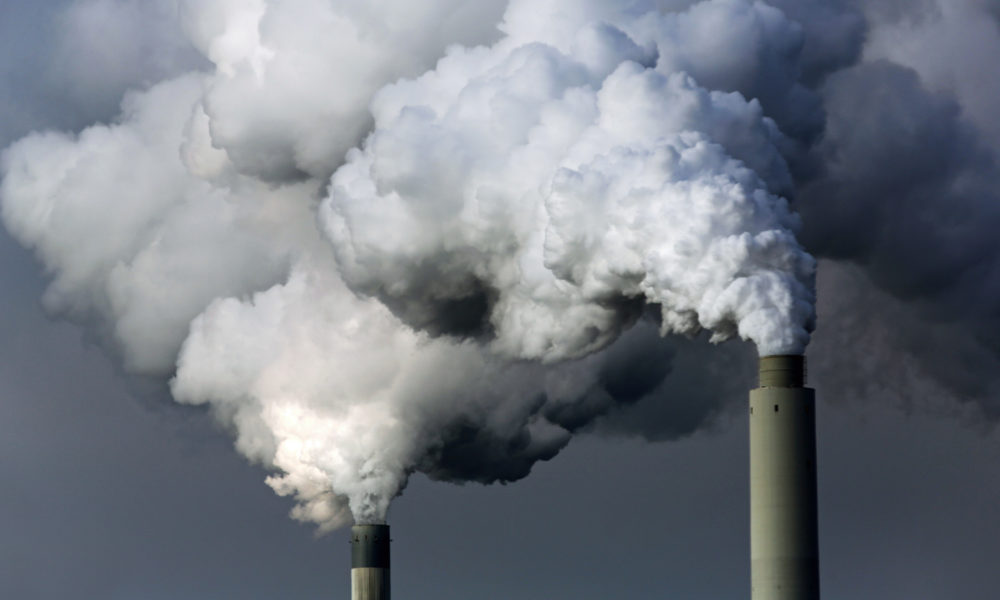Across the United States, COVID-19 has made multiple social and economic crises more visible than ever before: the dire precarity of most workers, the chronic underfunding of public health infrastructure, the inhumane conditions of incarceration and detention systems, and the unequal impacts of environmental racism. Prior to COVID-19, these problems were widely discussed by scholars and activists but often overlooked by corporate media outlets and the broader public. In our recent commentary published in the Journal of Health and Social Behavior, we described the ways in which already-existing environmental injustices are typically exacerbated under conditions of extreme global crisis, what we term eco-pandemic injustice.
COVID-19 exacerbates existing health inequalities
Our research team was first motivated to consider how crises like COVID-19 exacerbate environmental health inequalities when our partners in communities impacted by PFAS contamination began wondering whether PFAS exposure was contributing to increased COVID-19 vulnerability. PFAS (per- and polyfluoroalkyl substances) are a large class of over 9,000 human-made synthetic chemicals that have contaminated drinking water across hundreds of military, industrial, firefighting, and wastewater treatment sites in the United States. Scientific research has shown that PFAS chemicals impact the immune system and are associated with a suppressed vaccine response in children.
A recent study published in PLOS One suggested that higher blood levels of some PFAS chemicals may be associated with more severe cases of COVID-19. The study has prompted understandable concern from affected communities and a public statement from the Centers for Disease Control’s Agency for Toxic Substances and Disease Registry (ATSDR).
Growing research into COVID-19’s interaction with the environment has built on longstanding knowledge about how modifiable environmental factors can substantially impact health, such as how air pollution is associated with increased COVID-19 death rates. As we’ve seen since the beginning of the pandemic, infection and death rates have been disproportionately high for Black, Indigenous, and People of Color. We know that air pollution is disproportionately produced by White people and disproportionately inhaled by Black and Latinx people, and the disparate impact of environmental contamination adds to the unequal impacts of COVID-19 experienced by BIPOC. Black Americans comprise 13 percent of the population, yet account for 34 percent of COVID-19 deaths, and the Navajo Nation notably had the highest per-capita rates of COVID-19 infection in the entire United States in May of 2020 (Navajo Nation 2020). While there are multiple contributing factors that influence higher infection and death rates among these populations, living in highly polluted environments likely increases COVID-19 susceptibility.
Current policies worsened COVID-19 impacts
As Naomi Klein has shown in her work on disaster capitalism, rather than working to mitigate the links between injustice and socio-ecological crises, governments often exacerbate them. The Trump Administration took advantage of the pandemic to further the administration’s deregulatory agenda, for example by relaxing the enforcement of environmental regulations during the crisis, a move that disproportionately impacted people living and working near high-polluting facilities. Corporations and the wealthy have furthermore profited immensely off of the pandemic. Huge gains in the stock market disproportionately benefited wealthy elites, major companies saw record profits while paying little to nothing in federal taxes, and very large firms received priority in federal COVID aid that was intended for small businesses.
Activists have pointed out how COVID-19 has burdened frontline workers, exposed the chronic underfunding of public health infrastructure, and jeopardized the lives of prisoners trapped in highly contagious settings. Organizers emphasized injustices in housing, health care, education, police brutality, and immigration policy.
Toward policies for positive change
Many people and social movement organizations were unwilling to accept Trump’s deregulatory agenda and its accompanying denial of the severity of COVID-19. Over the last 15 months, we have observed how moments of eco-pandemic injustice have also created opportunities for social movement activism and, potentially, for positive changes that can improve public and environmental health. Climate activists, for example, have been fighting to end federal subsidies to the fossil fuel industry.
Accompanying this push for more localized systems, we have witnessed efforts to close downtown commercial streets to vehicles, and to boost Community Supported Agriculture subscriptions. Increased public attention to inequalities in COVID-19 outcomes for the historically excluded points to the necessity for more systematic data collection on environmental health disparities.
What prefigurative social changes can arise from the pandemic? With millions of US workers’ employment still affected by pandemic fallout, the need for a public, single-payer healthcare system that decouples health insurance from employment is urgent. A lot has changed over the last several months: a new presidential administration has put environmental justice back on the agenda and simultaneously overseen an ongoing national vaccine rollout. Despite these changes, we continue to observe eco-pandemic injustice at play in the context of inequitable vaccine distribution both within and outside the United States, particularly in the context of negotiations over waiving intellectual property rights to facilitate the vaccine’s distribution internationally.
Observing crises like COVID-19 through the lens of eco-pandemic injustice can help render the connections between racism and public and environmental health even more visible, with the potential to catalyze new forms of social movement activism and policy change to reduce inequity and prioritize environmental health.

